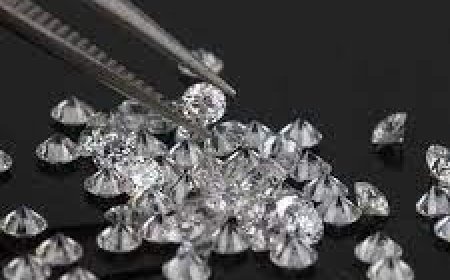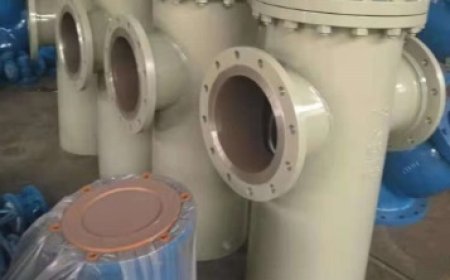Precision Reflectors for Modern Laser Systems: A Deep Dive into Laser Mirrors from LaserChina
Laser mirrors are at the core of advanced optical setups, enabling high-efficiency reflection, beam shaping, and long-lasting performance in laser systems

Laser mirrors are at the core of advanced optical setups, enabling high-efficiency reflection, beam shaping, and long-lasting performance in laser systems. LaserChina, a recognized name in the laser optics industry, stands out for manufacturing top-tier laser mirror that combine innovation, quality, and precision. Whether for CO? lasers, fiber lasers, or solid-state systems, their mirrors meet the diverse demands of scientific, industrial, and medical applications.
What Is a Laser Mirror?
A laser mirror is a specialized optical component designed to reflect laser beams with minimal absorption or scattering. These mirrors are often coated with dielectric or metallic layers to ensure high reflectivity at specific wavelengths and angles of incidence.
Why Laser Mirrors from LaserChina?
LaserChina offers laser mirrors tailored to exacting industrial and research-grade standards. Heres what sets them apart:
Key Performance Attributes:
| Feature | Description |
|---|---|
| Reflectivity | Up to 99.9% at designed wavelengths |
| Damage Threshold | High LIDT (Laser-Induced Damage Threshold) coatings |
| Substrate Material | Fused silica, silicon, copper, and more |
| Surface Quality | 10/5 or better scratch-dig rating |
| Customizability | Full support for OEM and project-specific requests |
Types of Laser Mirrors Available
LaserChina offers a broad selection of mirror types for various applications:
-
Dielectric Mirrors: Engineered for high reflectivity at specific wavelengths.
-
Metallic Mirrors: Provide broadband reflection with durability.
-
CO? Laser Mirrors: Designed for mid-infrared performance, especially at 10.6 m.
-
Scanning Mirrors: Used in galvo systems for high-speed beam movement.
-
Cavity Mirrors: Built for high-power laser resonators.
Each type is precision-manufactured and tested to withstand demanding optical environments.
Applications Across Industries
Laser mirrors from LaserChina support mission-critical roles across sectors:
-
Medical Lasers: Dermatology, ophthalmology, and surgical laser systems.
-
Industrial Cutting and Welding: Especially for high-power CO? and fiber lasers.
-
Research Laboratories: Ultrafast optics, spectroscopy, and quantum systems.
-
Defense and Aerospace: Rugged designs for mission-critical optical systems.
Selection Guide: Choosing the Right Laser Mirror
Choosing the right mirror depends on several performance factors. Heres a quick selection guide:
| Application | Recommended Mirror Type | Wavelength Range | Substrate |
|---|---|---|---|
| CO? Laser Cutting | Gold-coated Silicon | 10.6 m | Silicon |
| Fiber Laser Marking | Dielectric Mirror | 10301080 nm | Fused Silica |
| Lab-Grade Spectroscopy | Broadband Metallic | 400700 nm | Copper/Aluminum |
| Ultrafast Pulse Lasers | Low-GDD Dielectric | 800 nm | Fused Silica |
Frequently Asked Questions (FAQs)
Q1: What is the difference between dielectric and metallic laser mirrors?
A: Dielectric mirrors offer higher reflectivity at specific wavelengths and low absorption, ideal for laser cavities. Metallic mirrors provide broadband reflectivity but usually with lower damage thresholds.
Q2: Can LaserChina customize laser mirrors for unique system requirements?
A: Yes. LaserChina provides custom coatings, substrates, and geometries to align with OEM or specialized application needs.
Q3: How do I maintain the longevity of a laser mirror?
A: Handle with clean gloves, store in a dry, dust-free environment, and clean only using approved optical-grade solvents and procedures.
Q4: What tolerance levels does LaserChina support for laser mirror flatness?
A: LaserChina offers surface flatness ranging from ?/4 to ?/10, ensuring minimal wavefront distortion for high-precision systems.
Q5: Are these mirrors compatible with high-power laser applications?
A: Yes. High LIDT coatings are standard on many models, suitable for kilowatt-class lasers.
Technical Considerations When Buying Laser Mirrors
-
Wavelength Specificity: Ensure mirror is coated for your lasers exact wavelength.
-
Angle of Incidence: Coatings are optimized for standard AOIs, usually 45 or 0.
-
Power Handling: Match your mirror to the laser power to avoid coating damage.
-
Thermal Stability: For high-rep-rate or continuous operation, thermal load resistance is crucial.
What Makes LaserChina a Trusted Source?
LaserChinas manufacturing is backed by:
-
ISO-certified production processes
-
Cleanroom coating environments
-
In-house metrology, including interferometry and spectrophotometry
-
Fast lead times for both standard and custom optics
Their team brings decades of experience in optical design, thin-film deposition, and quality controlensuring every mirror meets rigorous optical and mechanical standards.
Final Thought
For professionals seeking reliable, high-performance reflectors tailored to their laser systems, LaserChina's laser mirrorare engineered with precision, endurance, and versatility in mind. Backed by advanced coatings, industry experience, and tight tolerances, these components reflect LaserChinas commitment to optical excellence.








































